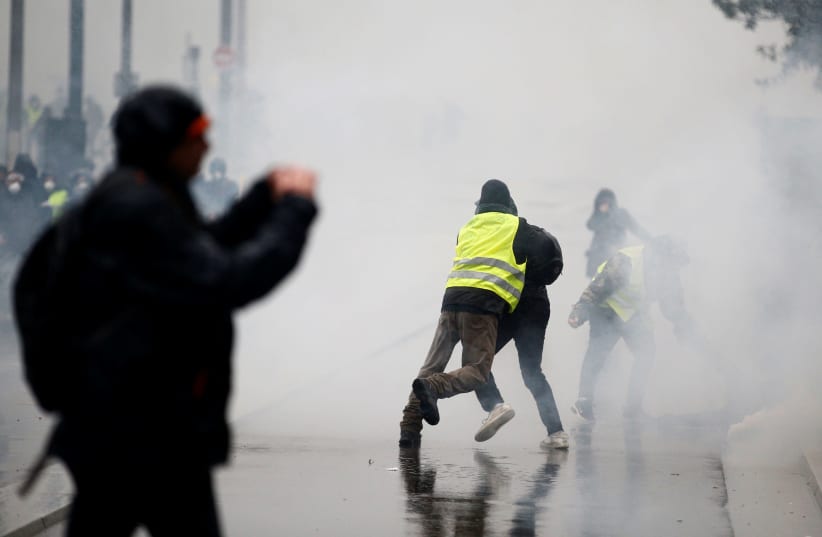Thousands of demonstrators took to the streets of Paris and other French cities on Saturday for a 21st straight weekend of anti-government "yellow vest" protests, but the marches were largely peaceful.
The quieter nature of the demonstrations should be a relief to President Emmanuel Macron, who this week wrapped up two months of nationwide town hall meetings as part of his "grand debat" initiative.
Prime Minister Edouard Philippe is due on Monday to outline the initial findings that emerged from hours of discussions with local mayors and officials, high-school students, workers, intellectuals as well as 1.9 million online contributions.
Macron, who launched the debate in a bid to calm the protests and determine which policies people want the government to focus on, is due to announce proposals based on the results later this month.
By early afternoon on Saturday, there were 21 arrests in Paris and also a few clashes with police in Rouen on the margins of otherwise peaceful demonstrations.
Protesters carrying French flags and holding signs calling for referendums tabled by citizens also marched largely without violence in Bordeaux and Lille.
The protests, named after the high-visibility safety jackets worn by demonstrators, began in November as an expression of public anger against fuel tax increases.
The movement soon morphed into a broader backlash against Macron's government, despite a swift reversal of the tax increases and other hurried measures worth more than 10 billion euros to boost purchasing power for less affluent voters.
By 1200 GMT on Saturday, turnout was 6,300 demonstrators nationwide, according to government estimates, compared with 5,600 at the same time a week earlier.
In Paris, two rallies had been authorized, including one from Place de la Republique in the east to La Defense business district in the west. Turnout was 3,100 by 1200 GMT against 1,800 at the same time last week. It was difficult to compare the figures because this week's marches started earlier than last week.As in recent weeks, authorities banned protests in potential trouble spots, including the French capital's Champs Elysees, fearing a repetition of the vandalism seen three weeks earlier.
